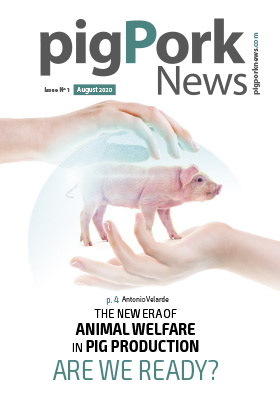Porcine Pleuropneumonia is a highly contagious respiratory disease with a strong economic impact for the pig sector worldwide caused by the bacterium Actinobacillus pleuropneumoniae (APP) (previously Haemophilus pleuropneumoniae).
There are currently 18 serotypes of A. pleuropneumoniae and three varieties of the infection/disease:
- Clinically acute
- Chronic
- Subclinical
In the case of the subclinical form, pigs may be infected without showing clinical signs or lesions in the lungs, and two possibilities may be observed in these cases:


How to face the challenge of Porcine Pleuropneumonia?
Keep up to date with our newsletters
Receive the magazine for free in digital version
REGISTRATION
ACCESS
YOUR ACCOUNT
LOGIN
Lost your password?







